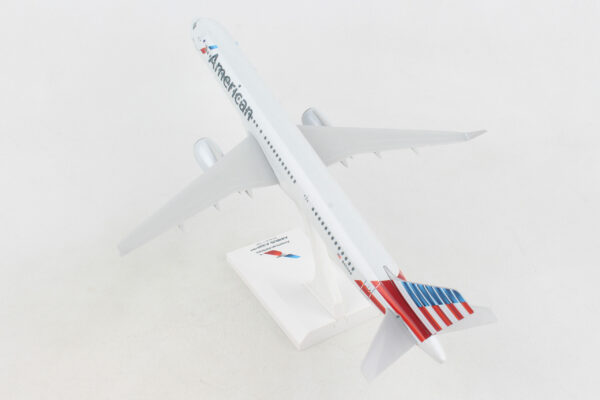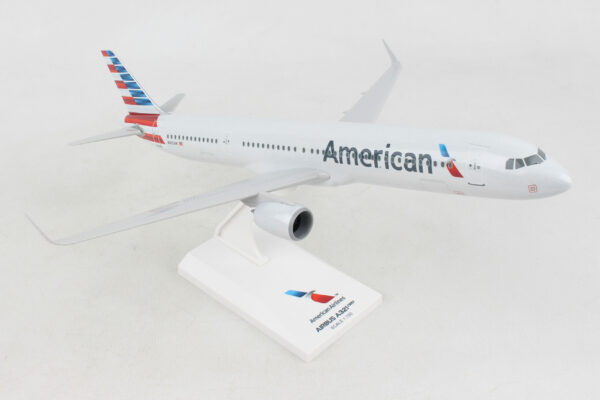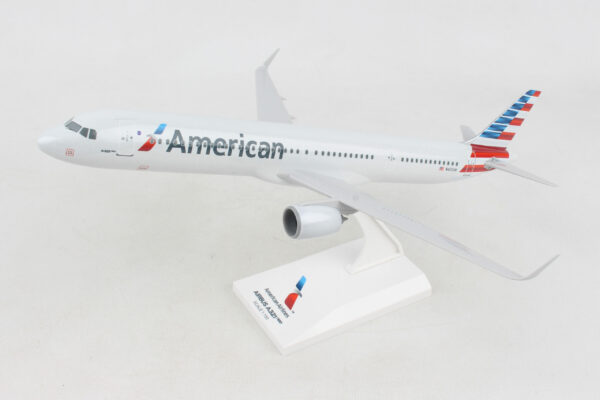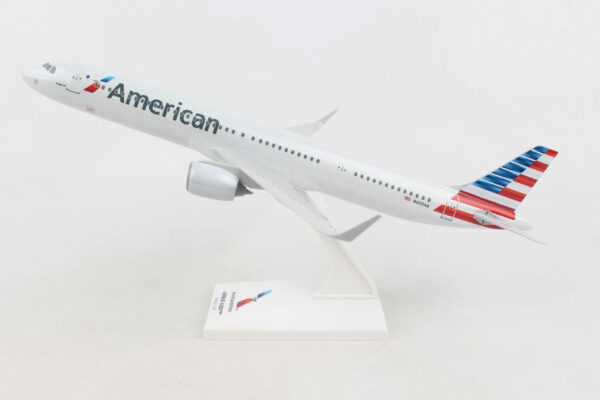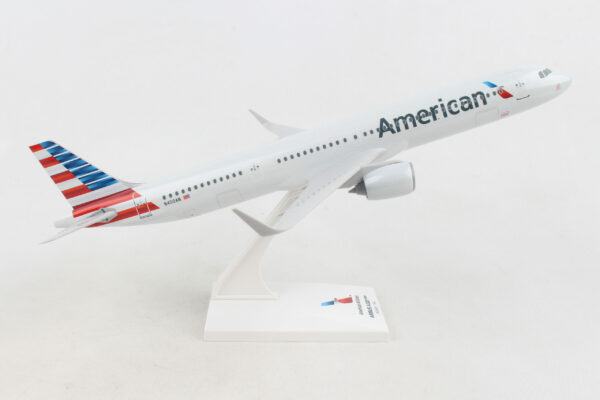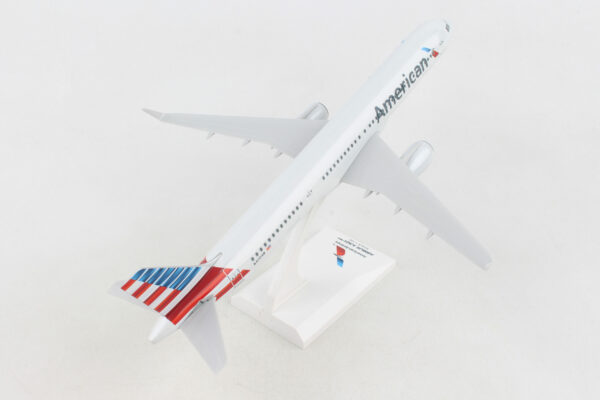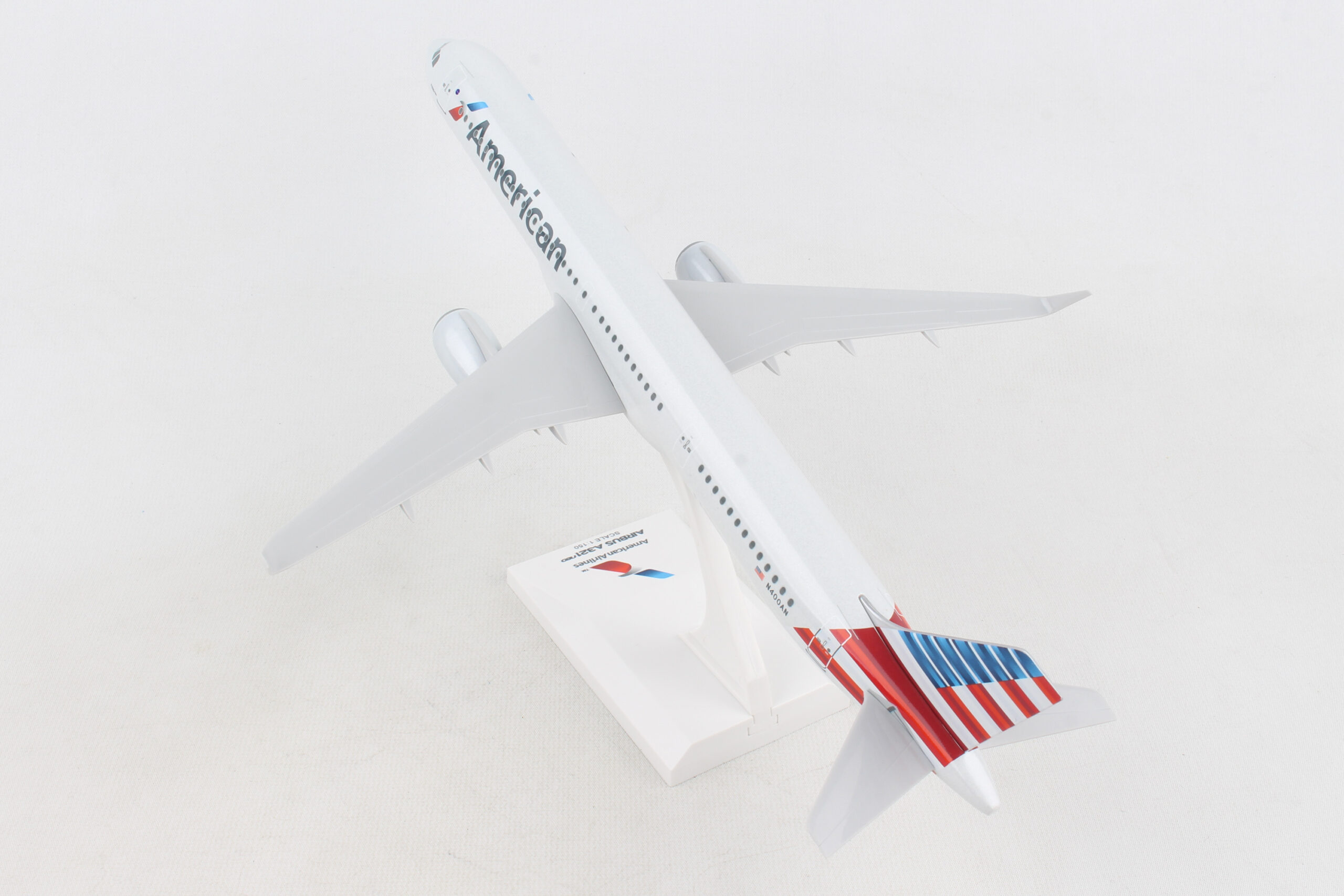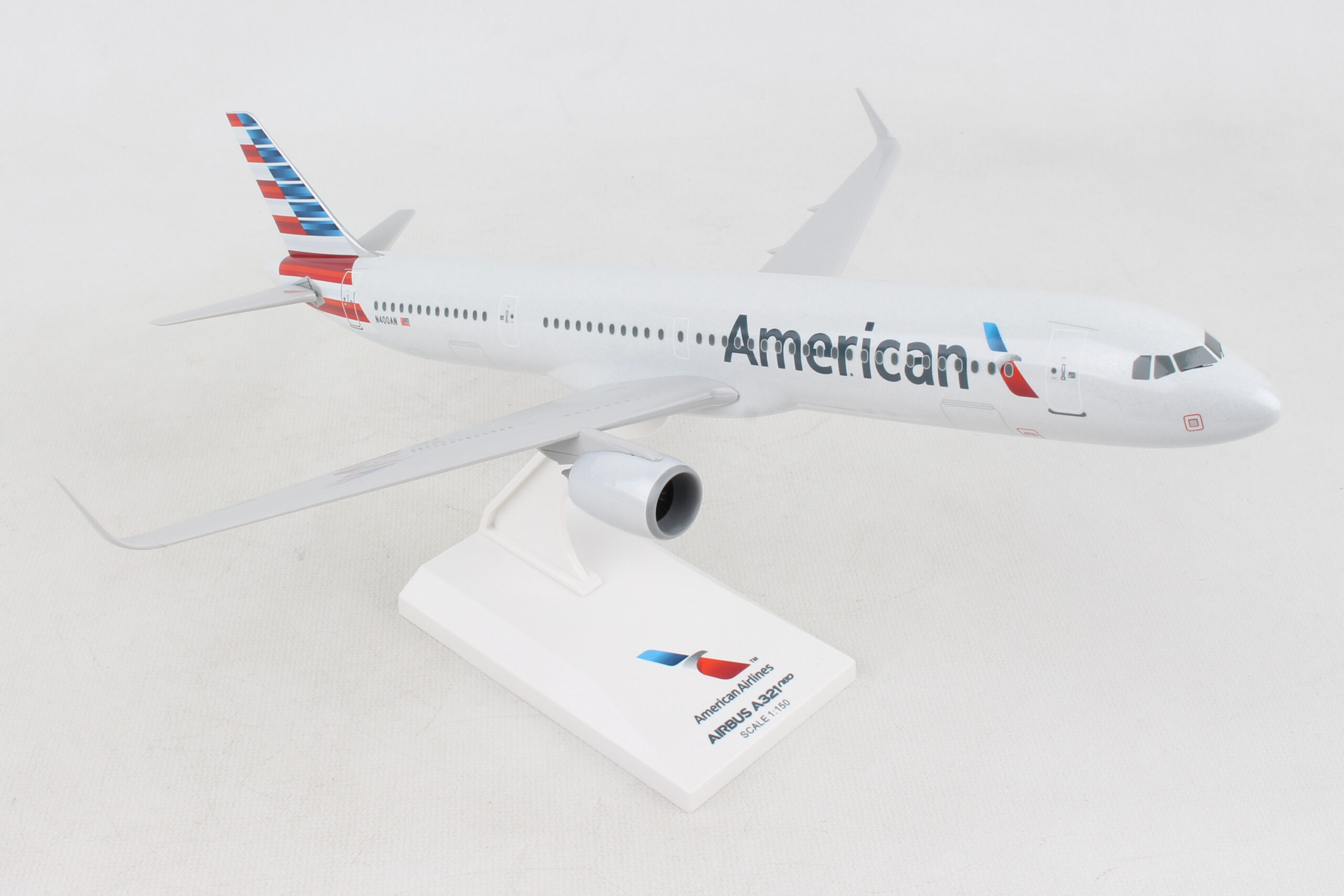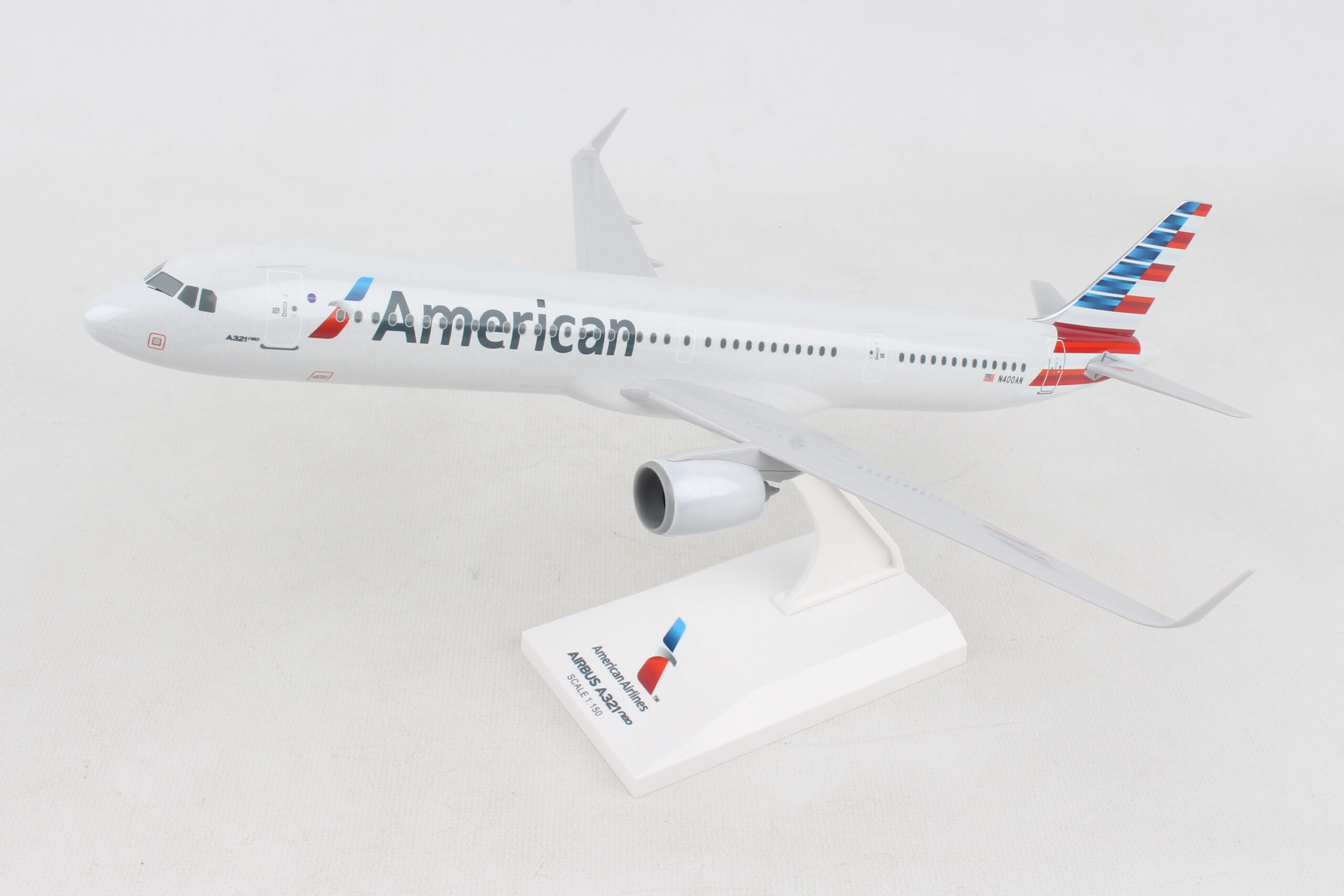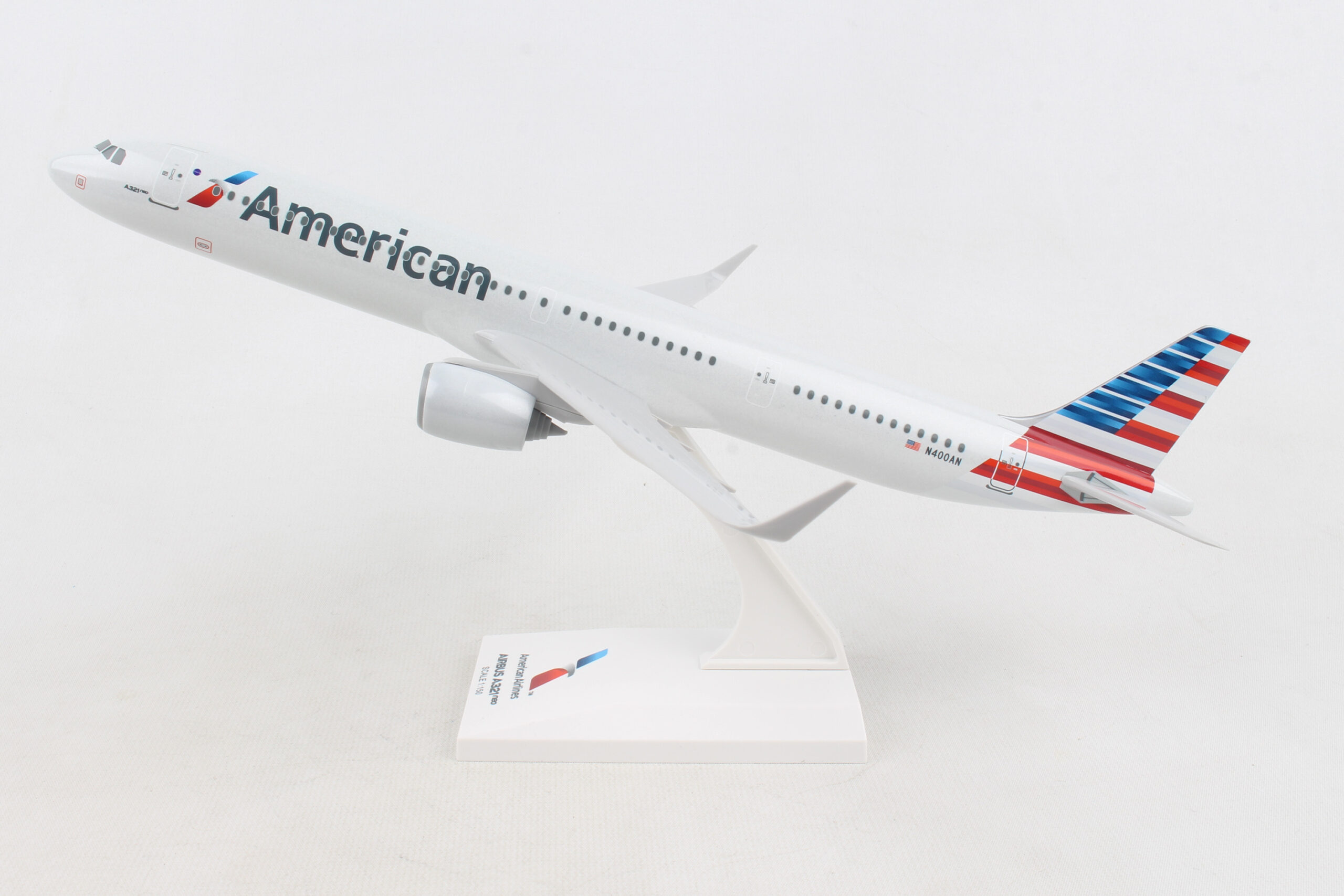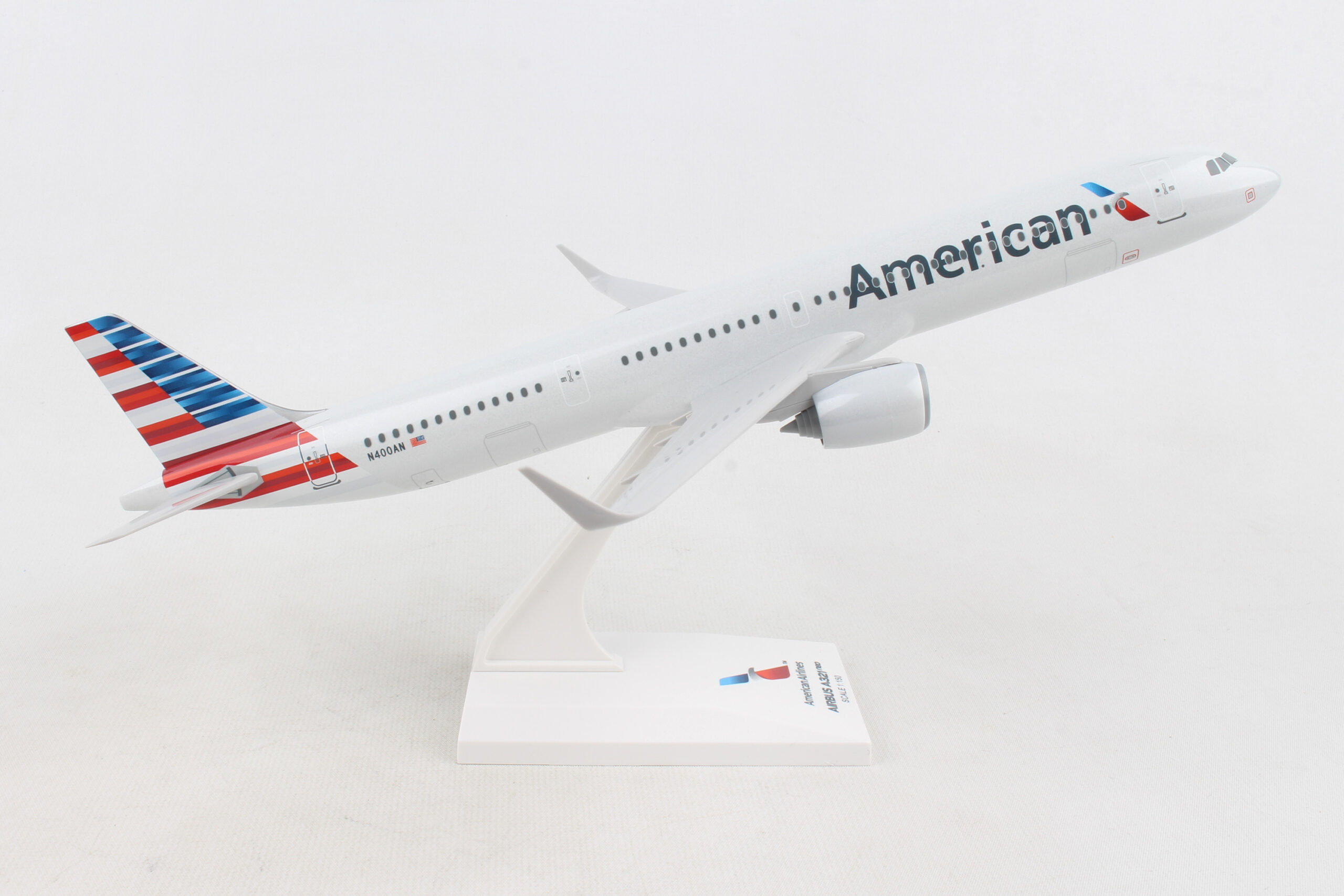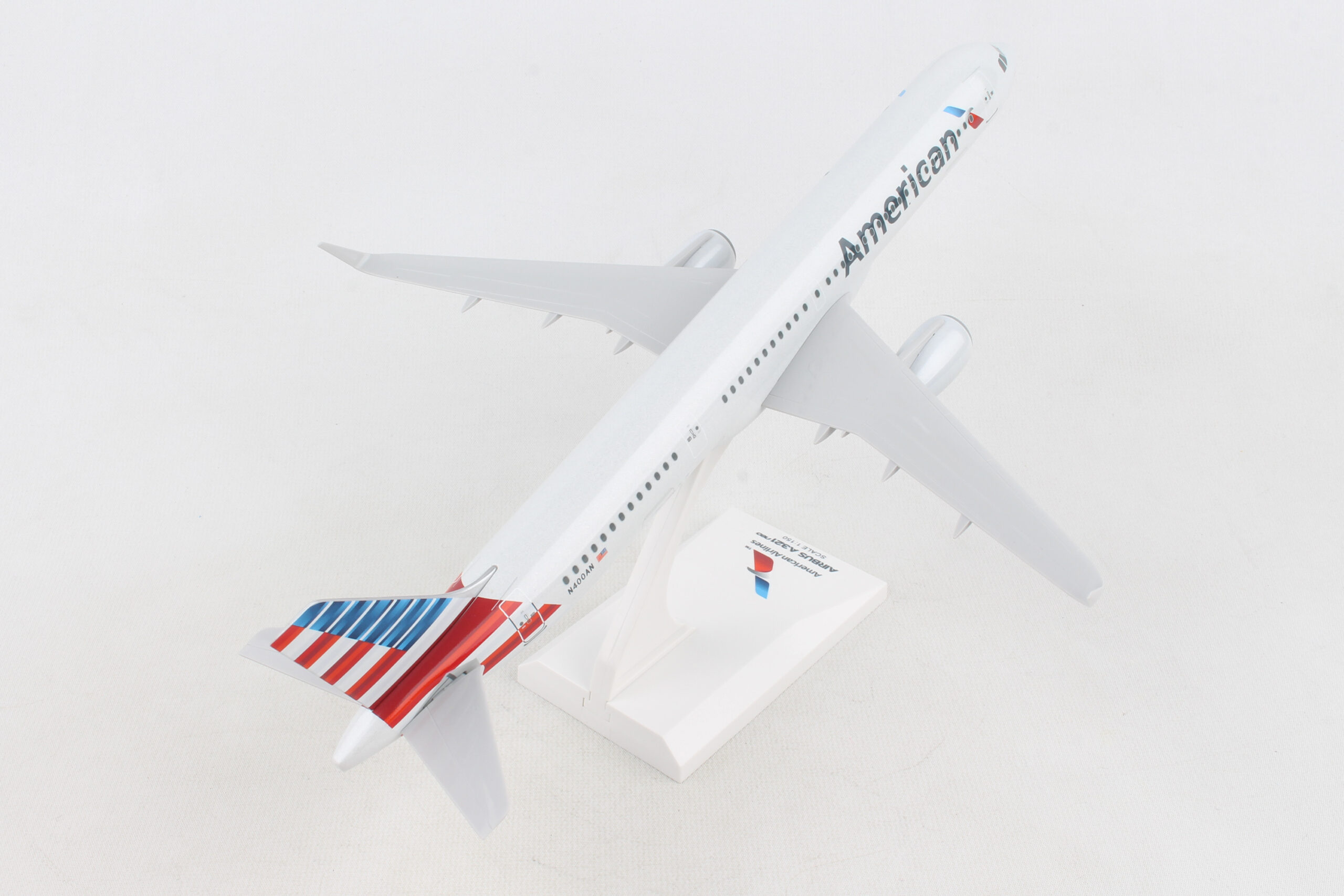SKYMARKS AMERICAN A321NEO 1/150
SKYMARKS AMERICAN A321NEO 1/150
Comprising superior quality, substantial, solid injection molded plastic components with a simple snap-fit design that allows for easy assembly without the need for glue, this SkyMarks 1/150 Scale American Airlines Airbus A321neo - Registration N400AN - measures approximately 11-5/8-inches long with a 9-5/8-inch wingspan and comes complete with a Display Stand. An accurate, true-to-scale reproduction of the actual aircraft, this American Airlines Airbus A321neo, which is manufactured as an officially licensed product, is great for collectors and features authentic, highly detailed graphics and markings.
The Airbus A321, which entered service in 1994 as an innovative pioneer with technologically advanced digital fly-by-wire side stick controls, is a stretched variant of the Airbus A320 family of short to medium range, narrow body commercial twin jet airliners and has the longest fuselage of the A320 series of aircraft.
According to Airbus, the Airbus A321 can comfortably seat 180 to 220 passengers in a typical two-class layout and as many as 244 passengers in a higher density arrangement. Utilized around the world by low-cost operators and mainline carriers alike to fly to all types of destinations in all types of environments, including short, urban runways, hot, dry deserts, icy Antarctic landing sites and remote high-altitude airports, the cockpit of the Airbus A321 shares commonality with the Airbus A319, A320 and A321, enabling pilots to not only readily change from one aircraft to another as needed with a Common Type Rating, they can even easily step up to widebody Airbus aircraft, making it easier for airlines to deploy flight crews with greater flexibility.
Based on the previous A320 family, which includes the A319, A320 and A321, Airbus released a more efficient version of the current Airbus A321, the Airbus A321neo, for "new engine option," which offers more efficient engines along with airframe improvements and the addition of winglets, consequently yielding a fuel savings of up to 15% and a maximum flight range of 4,000 nautical miles.
